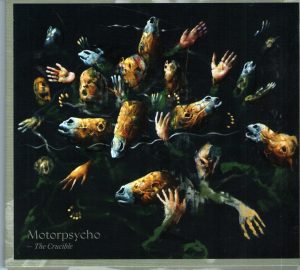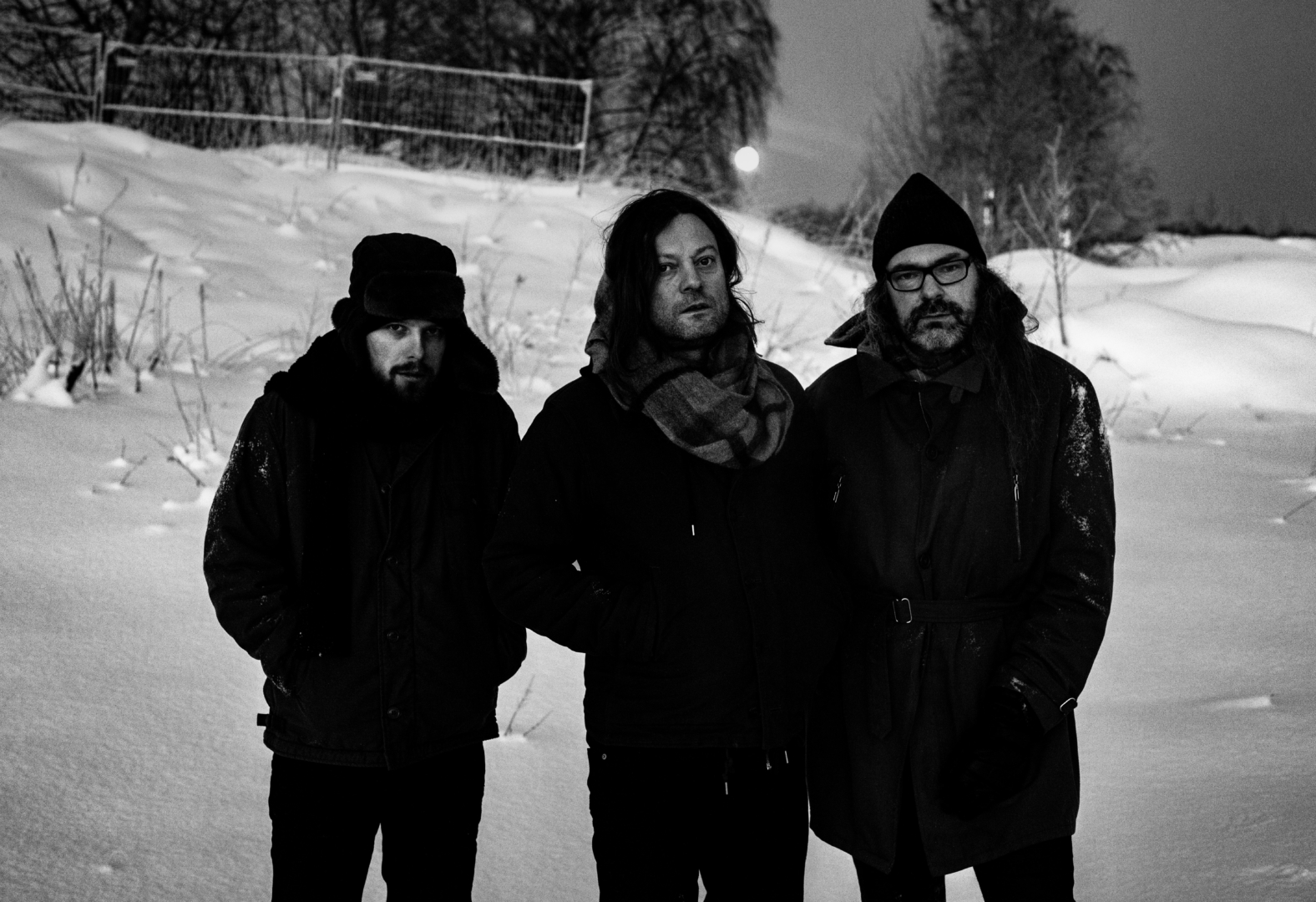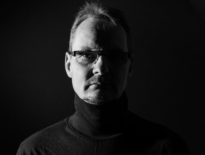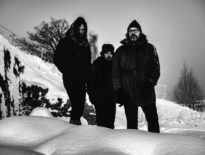Game Of Mellot(h)rones
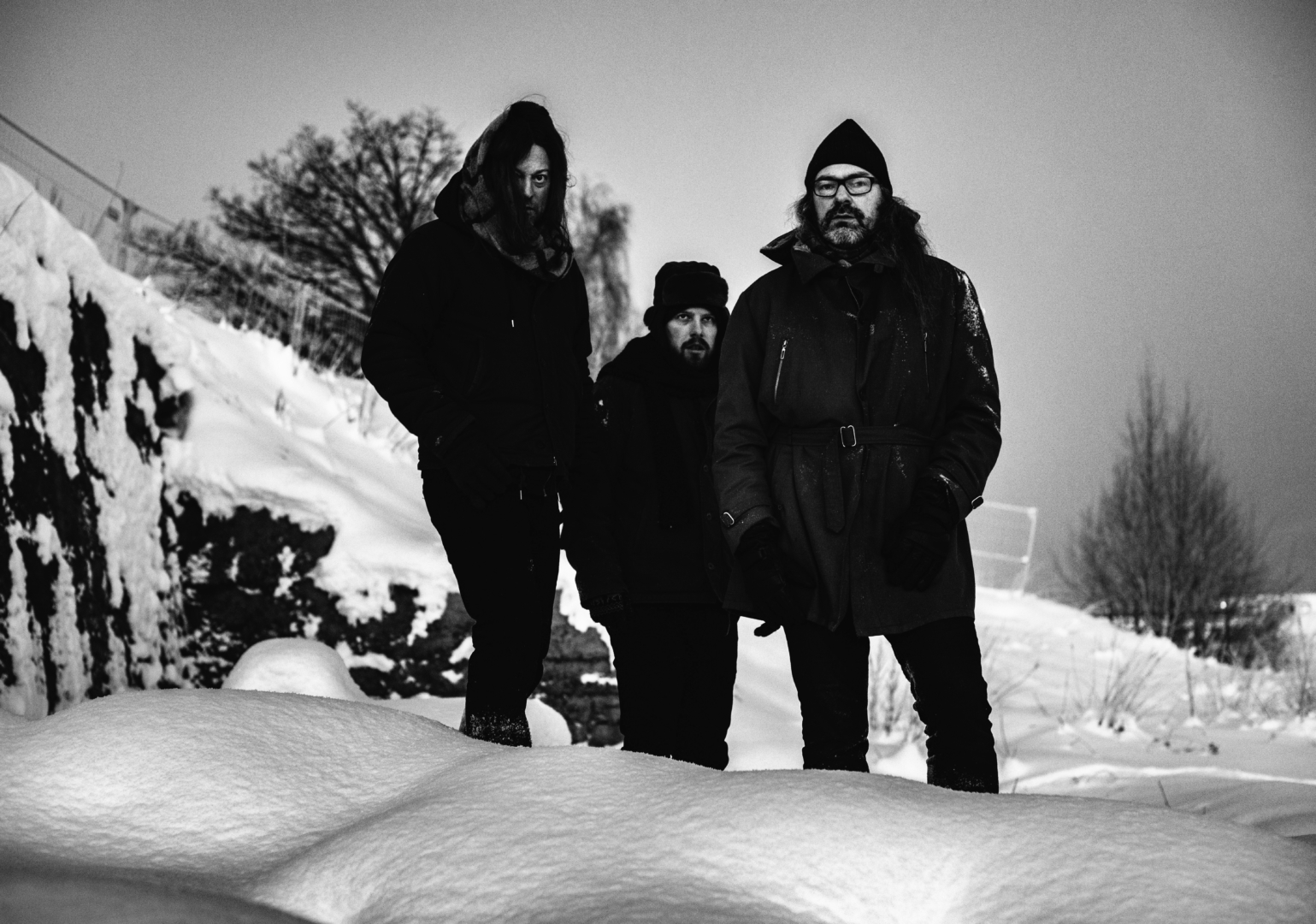
Motorpsycho's towering achievement with their “The Tower” album (2017) and its live presentation are still reverberating, but "The Tower"'s Successor "The Crucible" is almost here (15.02.19 via Psychobabble/Stickman/Soulfood). Carsten and Klaus wanted to know more, Bent Sæther was willing to help out.
All english interviews on BetreutesProggen.de
"The Crucible" consists only of three long tracks. You seem to have completely adjusted to longer songs for now – so is "shorter may be sweeter but longer is stronger" your new slogan?
(laughs) I dunno, but you have a point! We recorded more songs than went on the album during the sessions, but everything that was more traditionally ‘song’oriented felt like filler in context, so we decided to leave them all off and rather distill this one down to the core components, or elements if you like. A ‘normal song’ doesn’t pack as much punch as one of these biggies, so we felt this policy made the better album.
In spite of the running time all songs on the new album could be singles – as far as the material is concerned. Are you going to compress one or all of them into three minute smash hits? If so, how?
I think the shape they all ended up with are pretty damn near as perfect as they could be, so there are no single edits planned. But, yeah - in spite of being epic and having many parts, they all feel pretty natural (as opposed to ‘forced’ ), and also pretty catchy, so maybe we should. Any tips?
'Psychotzar' mabye, fade-out at 2:10? At any rate - it isn't easy to think of any band with such a frequency in publishing high quality albums – how do you manage? Is there never a "writer's block", a slower run of ideas, a fear of repeating oneself?
First of all, thank you! We try our best! But, seriously no, not really! For us the trick is to not evaluate anything you write untill you have finished acting on the impulse and thought out the whole idea. Even if it doesn’t fit right now, it may some time in the future, so there are no ‘bad ideas’ as such - they all just need the right context to be good. To work like this makes you listen to all sides of your musical self with equal seriousness, and I feel that giving all sides equal time and focus makes all new musical ideas flow more naturally, and also never quite stop due to too much censorship or too narrow a stylistic window to exist within. This sounds extremely arty (or stoned), and I’m sorry if it doesn’t make sense! My point is that there is no wrong or bad music, it’s all bout context, so I just write for any context that might reveal itself in the future and wait it out!
How is the usual workflow in writing (if you have one)?
My process is fairly simple and actually quite standardized by now: I’m veg’ing out in front of the TV with a guitar on my lap, noodling till I hear something. i then record that onto the phone for reference and keep noodling untill I either get lost or come up with something complimentary, record that, then take it to the rehearsal room and try it out with the guys to see how and what it feels like, maybe adding it to something half finished (or not), but documenting it and storing it on the HD for when it might be the perfect missing bit for something else. repeat ad nauseum (laughs).
I think it is fair to say that almost all fans recognized the differences in sound and style that resulted in Kenneth's Exit and Tomas' entry.
If they have ears it would be hard not to! The good thing for us is that most of the feedback we’ve gotten around that subject is positive, so that is nice. Tomas is a bit more … shall we say ‘versatile’ drummer than KK, and we are nothing if not a versatile band, so he fits in really well, plays both Geb (Håkon Gebhardt) and KK era songs with equal gutso and taste, and is a pleasure to work with. It took him until this summer to really find his space in the music, but now he’s well adjusted and ready to kick it up another notch. I love what he’s doing on "The Crucible" and hope everyone else do too!
I've seen you live supported by Ståle Storløkken, Kristoffer Lo and last year by Reine Fiske. How do you describe the effect of these "sidemen on the live experience?
They all add something different to our music. They all have a really distinct and individual voice in their music too, so they don’t feel like generic fourth guys slaving away in the back, but like equal partners in the nights’s proceedings. We find all of their input stimulating in different ways, and the fact that they have come and gone and ‘rotated’ a bit, has kept it really fresh for the three of us over the last couple of years. Most of the songs from "The Tower" have gone through a really exciting process and have changed a lot too, so it’s really a positive thing for us. We love them all and are grateful that they feel like coming out and playing with us!
I've had the privilege to have seen you more than ten times over the years, but last year's gig was the heaviest of them all – during e.g. 'The Wheel' you sounded like a Black or Pagan Metal band – and an excellent one! How come?
Uhm … Well, KK never quite found the groove on the 'Wheel' and a few of those Geb-era songs, so they were phased out and not played so much. Tomas fits ‘em like a glove, so a lot of those songs have made a return lately. Hard for me to say, but maybe those songs are what you reacted to?
The difference in KK and Geb’s styles was so big that a lot of the Geb stuff never felt right with KK. One of the nice things about Tomas is that he can do both that Geb thing quite naturally and that KK thing too, so we have a lot more music to choose from these days. I guess some of that older stuff is more pagan or metal, so …?
I haven’t really thought too much about this, but [the mellotron]has indeed become really important to our vocabulary over the years
Mellotron sounds seem to become more important over the years – what does this ancient set of samples, sounds and timbre do to and do for you?
The Mellotron is basically a sampler, right? A sampler, but all the sounds on it were recorded onto tape 50 years ago and thus have a certain vibe, timbre, and sonic quality that somehow just feels like it fits our music really well. I haven’t really thought too much about this, but it has indeed become really important to our vocabulary over the years. It always was I guess, there’s mellotron on MP stuff as far back as 1994, but increasingly so due to developments in digital technogogy: now it actually both sounds right and is transportable, so …win/win I guess!
You collaborated in 2002 with the Jaga Jazzist horns. Now the amazing Lars Horntveth played reeds on 'Lux Aeterna'. Is there even the slightest possibility we will see him as special guest on your next tour?
If somebody can cough up the money we’d need to afford a whole tour with him, sure! We are working with him on some new stuff now, so you’ll hear more from him in this context, but I dunno how much touring we’ll be able to get out of him. We’ll see. Great guy and a great musician!
The Press release makes a point of stating a couple of times, "The Crucible" was "more focused and concise" than "The Tower". I find that a bit hard to see and hear myself, as "The Tower" at least for me was one of your biggest achievements in melody, focus, accessability and recognizablity since "Blissard" maybe. At the very least it was heartwarming to experience fans singing the title track 'The Tower' at the top of their voices and by heart.
What is your own point of view here?
Well, I think Bob LeBad was talking about scale - that this isn’t a huge double album with many musical styles on it, but ‘just’ three numbers of a stylistically homogenous nature. I don’t think he was talking about any of those things you mention, although I see how you could interpret it that way. I’ll tell him to be clearer in the future.
You recorded in Wales – why?
Wales, because Andrew shipped a containerful of hardware to that studio and works there relatively cheaply! It is also the place where Ozzy & co wrote both Blizzard of Ozz and Diary of a Madman, so why wouldn’t we when we had the chance?!?
Co-Producers were Andrew Scheps (e.g. Adele, Red Hot Chili Peppers, Ziggy Marley) and Helge Sten aka Deathprod. How come? What were their exact roles? Helge played "audio virus" on the album – is it catching? How did the production evolve?
Well, Andrew mixed the last couple of live albums we did, and was really eager to get to do an album with us from scratch. Helge and him worked really well on those two live albums, and we all had a really good communicative thing going that we though it’d be fun to try to use more, so we doubled up on everything. We sent them a bunch of song and ideas to pick from, we tracked six or seven of these, finished five and ended up with these three on the album. Andrew engineered, but the two of them were colluding and discussing sounds and how to improve them all along, while the band kinda took care of the music, but we’d demoed these pretty thoroughly and knew what we wanted, so it was an easy process. Great guys both of them, a joy to work with and … well, the result speaks for itself!
Thank you for the music!
Cheers!
More on Motorpsycho:
Official Homepage
Homepage (less official, w/ Forum)
Facebook
Twitter
Interview: Bent Sæther, Motorpsycho, on “The Tower” (2017)
Interview: Bent Sæther zu „Here Be Monsters“ (german)
Interview: Bent Sæther zu „Here Be Monsters“ (english)
Konzertbericht, 28.04.16, Köln, Stollwerck
Konzertbericht, 19.06.14, Düsseldorf, Zakk
Interview m. Bent zu "Behind The Sun" (Empire Music No. 105):
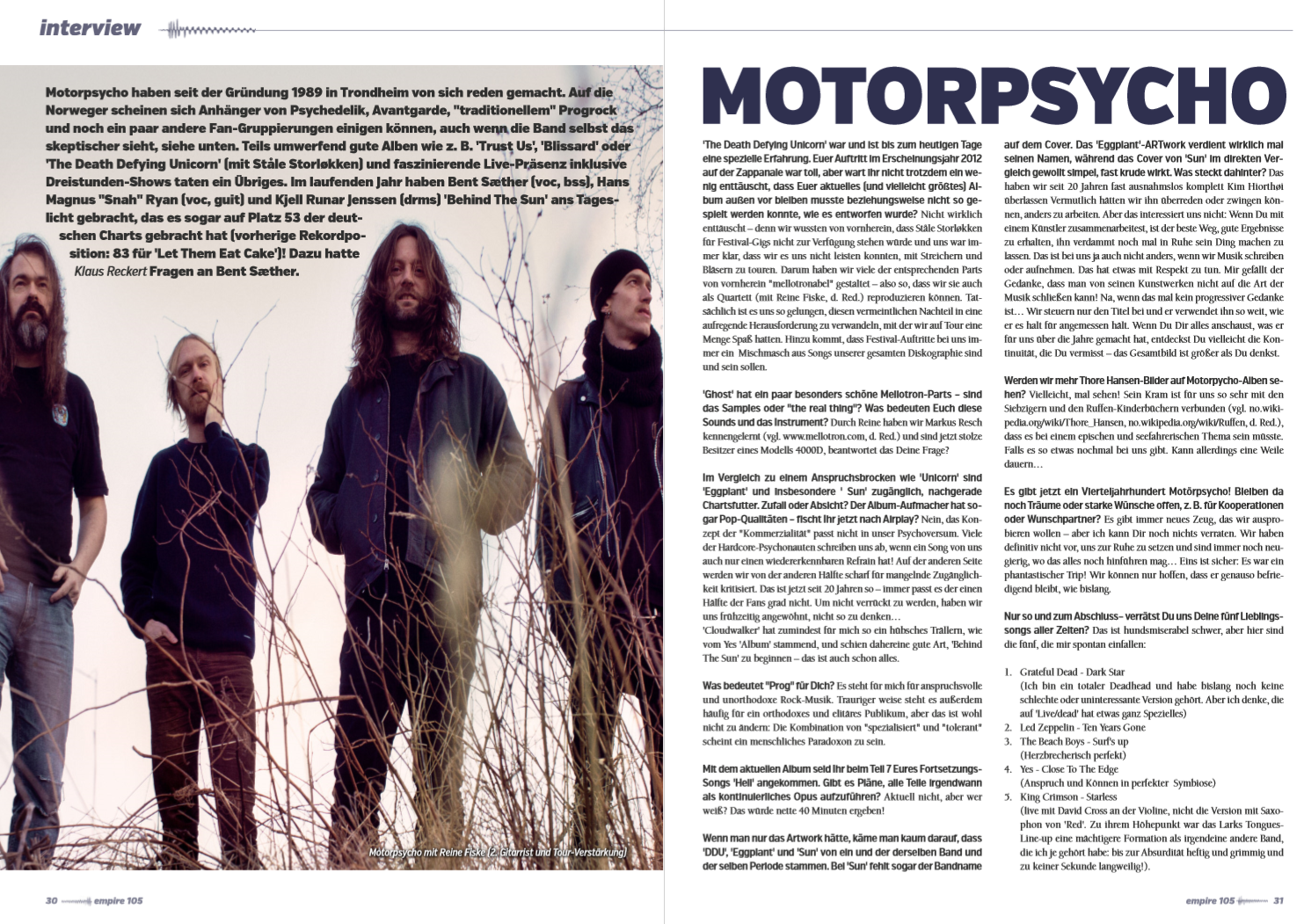
Bent Sæthers Top Five Songs (All Time Favs)
YouTube
Spotify
Soundcloud 1
Soundcloud 2
Wikipedia
Fotos: Terje Visnes

